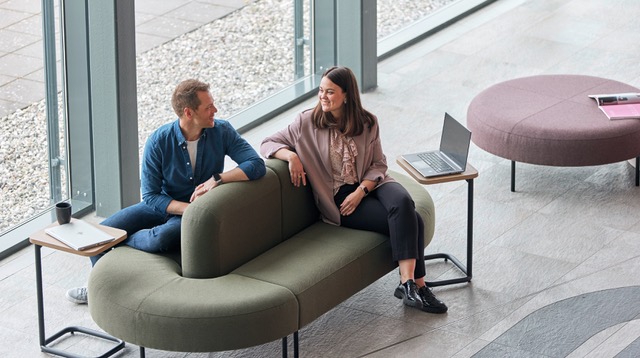BASINGSTOKE, UK. 18th December, 2024 – A new survey conducted by workplace product supplier AJ Products, sought to dig deeper into the importance of desk breaks and their impact on workers. They sought to reveal whether UK workers are adhering to current guidelines and the consequences, and to look at the results by age, region and profession.
Workplace health experts have long advocated for hourly breaks during desk work, emphasising the benefits of standing, stretching, or taking a brief walk for better wellbeing and physical and mental health.
A key finding from the new survey is that over half of UK workers are neglecting essential breaks, despite recent findings from the 2024 ASICS Global State of Mind study which found that two hours of uninterrupted desk time led to a notable decline in employee’s mental health, while four hours of continuous work led to an 18% increase in stress levels.
Helen Beebe, Managing Director of AJ Products (UK) expressed concern over the findings, emphasising the impact of prolonged static desk time on employee wellbeing. ‘Nearly a third of workers go for 3 hours or more without a break and this is a worrying statistic,’ Beebe stated, ‘this data underscores the urgent need to prioritise workplace wellbeing initiatives’
KEY FINDINGS*
Desk Break Frequency
- 41.5% of UK adults with desk jobs take at least one break per hour.
- 25-34 year olds are the least likely age group to take hourly breaks, with only 31.6% doing so.
- Hybrid workers are the least likely to take hourly breaks (38.8%) compared to 41.4% of office-based workers and 44.9% of fully remote workers.
- Cardiff has the highest rate of hourly breaks, with 68.4% of workers taking at least one break per hour.
- Travel agents are the most likely profession to take breaks, with 66.7% taking at least one break per hour.
*Using a demographically representative sample of 2,015 adults
Helen Beebe MD of AJ Products said of the results ‘At AJ Products our global mission is to bring happiness at work by improving workplace wellbeing for both physical and mental health. This survey has highlighted that the key to achieving a better workplace health is to have movement regularly dispersed throughout the day. Frequent desk breaks are just one element of this, and probably the easiest to implement, with far reaching benefits for mental health and efficacy.’
The survey underscores distinctive gaps in workplace wellness practices across businesses, ages and demographics, posing deep-rooted risks to UK businesses. Importantly it demonstrates a need to support educating the youngest workers on the significance of taking regular breaks for the future of their long-term health. There is an urgent need to ensure healthier workplace practices in the UK to support the entire workforce.
ENDS

